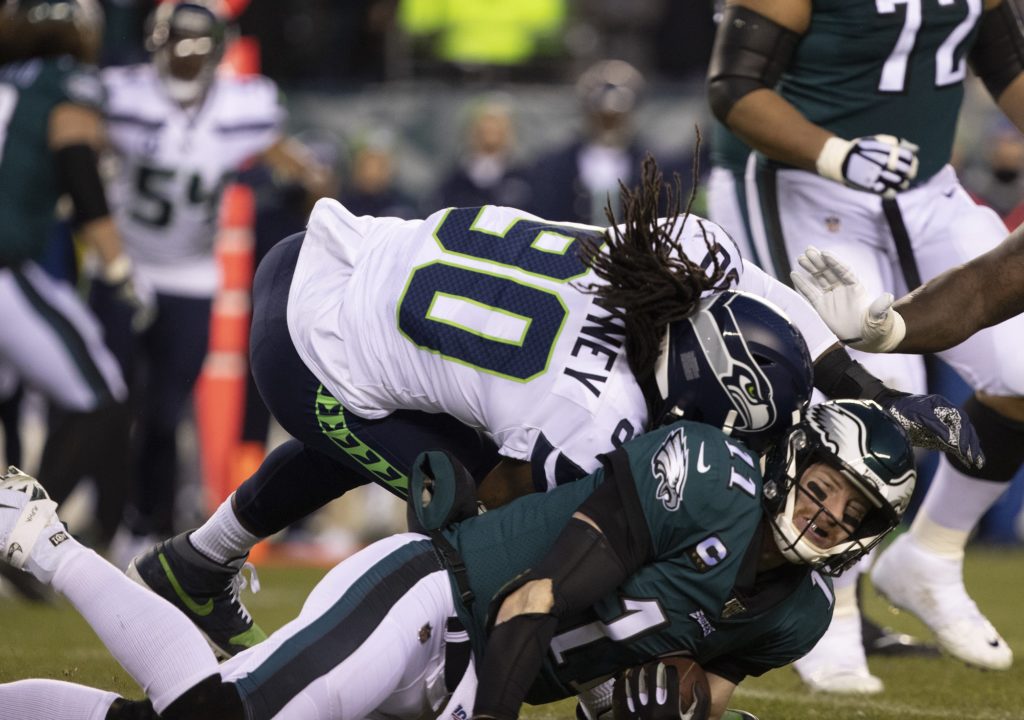Ad Disclosure
Jon Runyan Explains League Ruling on Jadeveon Clowney Hit

Former Eagles tackle Jon Runyan is the NFL’s current Vice President of Policy and Rules Administration.
He went on Angelo Cataldi’s show today to explain the league’s decision to not discipline Jadeveon Clowney for the hit he put on Carson Wentz, knocking him out of the wild card playoff game two weeks ago.
Cataldi opened by asking Runyan if he “anticipated a negative reaction” in Philadelphia after the ruling was made, to which Runyan replied, rather sardonically:
“Well when the ringleader is an old white guy on the radio, sounding like a politician, spewing stuff that doesn’t have a lot of facts based on it, yeah you can get there.”
Woof.
He continued:
“Here’s the thing about it Angelo, he’s not a defenseless player because he’s not catching a pass. He’s a runner, so he doesn’t have the roughing the passer protection. You go down the list of stuff (that constitutes) unnecessary roughness – it wasn’t a leg whip, it’s not out of bounds, he’s not blocking someone out of bounds. His forward progress had not been stopped and he had not slid feet first. He was not on the ground. The next one is unnecessary running, diving, swinging your body against a player who is not anticipating contact. That’s the kind of stuff I used to do when I was on the other side of the field.
The only (rule infraction) you can get in there is using any part of the player’s helmet or facemask, to ram, butt, or spear an opponent. Note this provision does not prohibit incidental contact by the facemask or helmet in the course of a conventional tackle. So when you go back and look back at this play, it’s really, really close. Carson’s elbow is still off the ground as Clowney’s arm – the first thing that contacts Wentz is Clowney’s arm, to his hip and lower back area. Then his shoulder rolls in and the helmet goes in.
Runyan says the continuation of the play is “deemed incidental” at that point. He notes that there was helmet contact after the tackle was initiated while the play fell “right on the line” of what’s legal and what’s not legal.
Anyway, it’s worth a listen. He explains further why the league ruled the way it did and approaches this in a refreshingly objective and reasonable way:
Kevin has been writing about Philadelphia sports since 2009. He spent seven years in the CBS 3 sports department and started with the Union during the team's 2010 inaugural season. He went to the academic powerhouses of Boyertown High School and West Virginia University. email - k.kinkead@sportradar.com